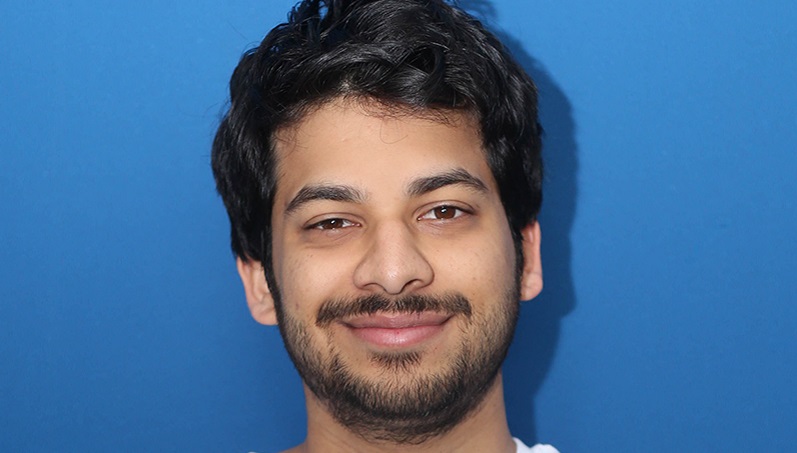We all have them. Those apps we open without thinking. Not because we need anything in particular, but because they feel… safe, in some…
CoGrammar to make 200 hires in Cape after new funding, reveals SA founder

Riaz Moola, the founder of UK and SA-based edtech startup CoGrammar, says his startup will hire 200 employees in Cape Town by the end of next year, after closing a funding round earlier this year.
Speaking to Ventureburn yesterday while on a short visit to the city, Moola (pictured above) pointed out that the startup expects to hire 50 of the new hires by March next year when it kicks off a recruitment drive on 10 September.
The news comes amid a tech boom in Cape Town, with SA bitcoin exchange Luno currently looking to fill 40 new positions for the company’s Cape Town office.
Read more: Luno looking to hire 40 new staff at Cape office amid tech investment boom in city
Read more: Cape Town’s IT sector more than double that of Lagos, Nairobi combined – report
Most of CoGrammar’s hires are code reviewers or assessors, as the startup rolls out its new white-labelled service that helps assess those learning coding, to universities and academies in the US.
It follows the announcement earlier this month by CoGrammar of a funding injection the startup received of an undisclosed amount.
The company was started by Moola in London in June 2016 as HyperionDev, offering an online coding bootcamp in Africa which it scaled to 40 countries.
Moola said he will retain HyperionDev which will continue to offer its online coding bootcamp product and will fall under the CoGrammar name. This, while CoGrammar will roll out its white-labelled assessment service to training institutions and universities — initially targeting the large market of such organisations in the US.
While he declined to mention any names of clients, he said the startup had signed up a major client, but added that he is unable to mention who this is.
While Moola said the funding round was finalised in the first quarter of this year, he declined to reveal who the investor, was. He hinted only that it was a venture capital fund. He declined too, to reveal the amount of funding and equity share the fund took in his company.
UK headquartered startup CoGrammar plans to make 200 new hires by the end of next year, after clinching Series-A funding earlier this year
However, Moola was able to disclose that the startup received offers of investment from four UK and US-based venture capital funds, and that the team size has more than doubled to 40 since the start of this year. Some of the hires are former employees of SA edtech GetSmarter, which last year was acquired by 2U for $103 million.
While his startup is headquartered in London, Moola said about 80% of his staff are located in Cape Town. There are also employees based in the UK, US and Zambia, he added.
Moola claims CoGrammar’s coding review service — which relies on machine learning algorithms and trained coding assessors based mainly in Cape Town — helps universities and training institutions make a cost saving of five to 10 times when it comes to assessments.
It is also faster than regular assessments. Moola singles out one case where one of their assessments on one student’s work was about 20 times faster than traditional coding assessments. Over 80% of students who use the service recommend the service to others, he adds.
The round of funding comes after HyperionDev in 2o16 won first prize in Facebook’s Innovation Challenge, securing $230,000 in funding from Facebook in addition to several grants from Google and the Python Software Foundation.
After securing the grant, he says he was able to hold off from giving away a share in his company to interested VC funds that approached him. “What is the point if you get a grant — as you can grow and get a better valuation (using the grant),” he added.
Before founding the company he worked for Google in Switzerland for a year (he was back and forth between the country and the UK). It was while working for Google that he became aware of grants the company offered. He took advantage of three grants — that were aimed specifically at South Africans that sought to help computer science graduates to train people to become coding and computer science educators.
All the way from Pietermartizburg
Moola – who was born in Pietermaritzburg where he lived until he was seven before moving to Durban — says he went to study in the UK in 2011 after dropping out of the University of KwaZulu Natal (UKZN) in first year.
It was while completing his undergraduate degree at Edinburgh University that he and a group of computer science students set out to solve a pressing issue at their campus: a large number of their peers were dropping out of their Computer Science degrees due to a lack of practical coding knowledge.
They built a website to pair struggling university students with online mentors, which soon became HyperionDev.
While completing his Masters in the business and computer science departments, Moola was able to secure office space, mentorship and some introductions to investors with the help of the university’s Cambridge Social Ventures. The startup was eventually spun out of the university.
In this time he also secured help from the City of London’s London Co Investment Fund and the startup is currently getting support from the University of Edinburgh’s Launch.ed.
“All three were extremely helpful in allowing us to pursue our fundraise and align our strategy to be more ambitious under the CoGrammar model,” said Moola.
He said the new hiring process kicks off on 10 September will run for two months. Those that apply will have to undergo eight assessments which run for a two-month period.
Confirmed Moola: “We are growing quite fast”.
Just like the SA-born entrepreneur, Cape Town’s tech community must be smiling.
*Correction: A press release by CoGrammar incorrectly stated that the startup secured a “Series-A” funding. CoGrammar founder Riaz Moola subsequently pointed out that it was only a “pre-Series-A” round.
The recruitment round will be open for two months and not 10 days as initially stated by CoGrammar.
Featured image: CoGrammar founder Riaz Moola (Supplied)

